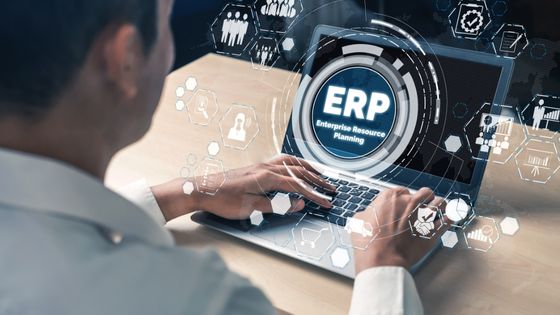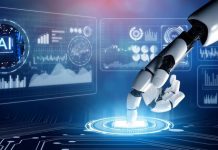What is an ERP system?
ERP is an abbreviation for Enterprise Planning. It is software that is used by companies to manage their businesses. It is an integrated system and manages all the departments of an organization such as supply chain, services, human resources, project management, and finance. It is used to enhance businesses.
How does an ERP system work?
It is a management, a system, and business software. It connects all departments of a company in a single platform. The basic function of the software is to provide data of all departments in one place. It provides one window of information. For example, if a manufacturer wants to see the position of sales he can see it easily. If a financier wants to check how much our productions and distributions can access easily in the software. Similarly, a company can manage customer portals. ERP system is web enabled and everyone who has authority can access it anywhere whether he is in office or out of the office through the internet. It is easy to access and get information quickly from other departments. In this way, an organization can make its strategy and take true decisions.

Types of ERP systems:
There are two types of Enterprise resource planning software
1. On-premise
- Cloud-based
1: On-premise
In this kind of ERP software, a company purchases ERP software from the market and installs it on its server internally. All the responsibilities of it like installation, implementation, maintenance, and staff training in the company. All the control and supervision remain under the company.
2: Cloud Based
In this kind of ERP software a company purchases services from the vendor. Vendors give access through the web. ZARA ERP system and software solution charges annual subscription charges from the company and provides multiple services like staff training, software updates, maintenance, and stability.
ADVANTAGES OF ERP SYSTEM
In the past, companies used to save data in each department’s database. The information remains in a particular department and is shared in the same department. If other departments want to get the information they ask the specific department manager in order to access the department.
By using an ERP system the system can save all information from all department in on database
Increased Efficiency in Business:
Before the ERP system, all the data was saved in more than one database. This can be duplicated and can be an old version.
After the system, all the departments integrated and stored all information in a single database. Now everyone can get the latest information about different departments from a single database.
Mobility:
Nowadays it is the android mobile era. Everybody has a smartphone and wants to work on smartphones and tablets rather than computers. It is mobile friendly and the work they want through the web. Users can generate reports and get information from the mobile about the business.
Nowadays many suppliers have mobile applications and give for working on a small screen. Some employees have field work and they move to different cities. Such employees can work on mobile devices other than computers. A supervisor can monitor and check, take decisions and give approvals.
Use of latest Technology:
As you know, this is the technology era. Everyone is moving to the latest technology. If an organization wants to give the best performance it has to adopt the latest technology.
ERP system gives options for moving the latest technology. In the system, a company can use new technology and can give better results.
Improve sales and custom services:
ERP is an extended system that improves sales and customer services. It attracts customers. Through the system, you are collecting their orders and giving answers to their queries.
Integration of data and Application:
ERP system is integrated software. All the departments of a company integrate through the software. When a person of a department enters the data in the database all the other departments can access the same data without mailing and permission. Due to integration, the flow of the information becomes very smooth and accurate.
DISADVANTAGES OF ERP SYSTEM
Cost of ERP Software:
The cost of Enterprise resource planning software is high, particularly for small and medium organizations. After implication of the software, its maintenance cost, employees training cost, and system hardware and software cost are very high. Small and medium companies cannot afford its cost.
System Migration Issue:
When you migrate from a simple system to an Enterprise resource planning system you can face many issues and problems like data collection, data shifting, and transferring through proper channels. It is a very difficult task to move to the Enterprise resource planning system.
IT hardware and software must be compatible with ERP and People Resources:
When you implement an enterprise ERP system your IT hardware and software must be compatible with Enterprise resource planning software and people should be trained. It is very essential for the implementation of Enterprise resource planning systems.
Conclusion:
Enterprise resource planning software is a business management software that controls business processes. It is integrated software that integrates supply chain, services, human resources, manufacturing project management, and finance. It gives accurate information about the business so a company makes the right decision. It is used to enhance businesses.

















